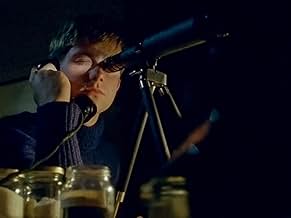I invite viewers of this film to compare it with the short version (Dekalog 6) and the script. All three differ from one another. They have different endings and lead to different interpretations.
In this film, the feature length version, Kieslowski portrays human love poetically, authentically, and powerfully. I consider Tomek as a lover by the form of incarnation. He takes into different forms (post worker, milkman, voyeur) in order to show his love towards Magda. It is important to notice that Tomek sheds his blood when Magda has sex with others. There is a scene in which Magda spills a bottle of milk and cries. Tomek sees her from his telescope. Only he is present for Magda. Overall, Tomek's love is both sacrificial and redemptive.
After Tomek's hospitalization, Magda dresses more conservatively. She does not engage in sexual affairs with any man. In this sense, Tomek's love redeems the lustful Magda. The commandment (Thou Shalt Not Commit Adultery) functions in the background. We normally perceive a voyeur as being adulterous. But in Tomek's situation, he peeps into Magda not as an adulterous voyeur. He loves Magda by peeping her as an incarnate. He expresses sacrificial, and redemptive love in a humane and authentic manner.
































